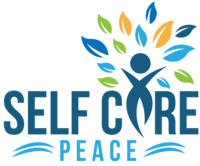Mental health conditions are tough. I know. I’ve been battling depression and anxiety for the better part of 30 years.
It’s not all about the personal anguish an anxiety attack or a bout of depression brings with them. It’s about how it affects the people around you. And it’s about the stigma.
I live openly with both depression and anxiety. It feels like the right thing to do. I don’t hide it, and I’ve developed a thick skin to protect me against prejudice and stigma. Sure, they still hurt, but I do think the fact that I live shamelessly and openly with both mental conditions helps others.
That keeps me going.
My journal, my judgment-free friend

It’s virtually impossible to explain to others what happens when you struggle with any kind of mental condition. Unless they’ve been through or are going through the same thing, of course.
I even found that psychiatrists and psychologists, however helpful they’ve been over the years, have little insight into the REAL experiential aspects of these conditions. They have the book knowledge, and certainly, they’ve listened to more than their fair share of accounts from patients, but the EXPERIENCE of it escapes them.
The most positive suggestion I ever got from a shrink was to keep a journal. I think his initial idea was to create some kind of map or timeline of how the conditions affect my everyday life so that he could work towards applicable and effective therapy to keep me functional.
But the journal turned out to be SO MUCH MORE in my life. It became the one place where I could pour out my often-discombobulated thoughts and feelings without wondering if I am saying it in a way someone else could understand.
Over the years my journal has become a safe haven for my inner turmoil. And I don’t only make entries – I often reread what I’ve written days, weeks, or even months later.
It has helped me:
- To understand the rhythms of how both depression and anxiety manifest in my life – and they really have a specific rhythm!
- To discover and understand my own triggers and how to avoid them
- To create a happiness index – a way to measure how many days a month I’m truly happy and content, and how many days are difficult. The insights are amazeballs!
- It has helped me to understand the impact my conditions have on the people around me, and how to explain and contain the fallout.
- It has helped me come to terms with both depression and anxiety, and see them for what they are. And they’re NOT the end all and be all of my existence!
If you’re struggling with your mental health as I do, I really suggest you give journaling a shot. I know how much we hate being told we HAVE to do something – and that’s not what I’m doing here at all!
I’m simply suggesting that you keep an open mind and see if you can get into the habit. Here’s how.
Starting your own journaling journey
Paper or digital?
There’s a lot to be said for both. I’m old school. I love reading books when I can feel the work between my fingers and smell the vanilla and mildew of old paper. So, when I write letters or personal notes (anything intimate, really), my go-to is always pen and paper.
But journaling is different for me. I went full-Monty-digital here!
The options are great, and you know yourself that one’s moods aren’t always as smooth as glass. Sometimes we’re all inspired, and sometimes we’re just unable to get going with anything.
My digital journal allows for both. But more about that later.
Create a habit (really)
I journal every day. I don’t make entries at the same time every day, but I do make entries EVERY day. This is important, both for therapeutic aspects and for accurate record keeping.
I start every session with a breathing exercise. I breathe in for 4 seconds hold my breath for 7 seconds and then exhale for five seconds. I do this at least three times. It helps me to ground myself and dims the noise of the outside world.
Then I get going.
My journaling habit is a bit of a ritual. And there’s a lot to be said for rituals.
Time yourself
I set aside 20 minutes a day for journaling. Those 20 minutes are about more than journaling, however. It’s about a little segment of every day I set aside for me only – a small block of time where the world and its issues don’t matter. It’s my time to check in on me. And only me.
Journal freely
Say EXACTLY what is in your mind and heart. Remember, this is a judgment-free zone. And remember not to judge yourself either!
Spelling doesn’t matter. Nor does grammar. Write shorthand if you wish! Remember, it’s for your eyes only. So, for as long as you can understand what you’re writing, the sky is blue and the sea is calm.
If you don’t feel like writing – record audio!
This is the great thing about using a journaling app. It allows you to record audio entries. I often do this. On the occasion I journal during my workday, I use this function. Also, when I’m just too tired to write.
The great thing about audio entries is when you revisit them, you get an even deeper insight into your state of mind. The nuances your voice gives away are really valuable. It will tell you as much, if not more, than your writing.
Thoughts and feelings and your journal

I am often asked what people should write in their journals. The answer to this is simple, yet varied. In short, write whatever you want, whatever is on your mind.
Here are a couple of pointers:
Do what is on your mind first
If you have a pressing thought or feeling – you know the kind I’m talking about – the kind that keeps on milling and swirling and simply won’t let you go no matter what you try, deal with that first. Write it down. Read it again. And then try to make some sense of it – but don’t get stuck in the analysis!!
Do the stream-of-consciousness thing
A stream of consciousness can be very revealing. Start writing and just let the words flow for as long as they want to. Don’t stop until you stop, if you know what I mean.
Then read. This kind of freewriting is fantastic because it often surfaces thoughts and emotions you’ve had for a long time, but haven’t ever translated into language. And, to deal with a thought or emotional pattern, you have to translate it into language first. That’s when you can consciously start to unravel the knot.
Pay special attention to jealousy, anger, and sadness
These negative emotions are poison. I don’t have to tell you that. And, with most mental conditions, they, unfortunately, come with the territory.
If we accumulate them without releasing them within the appropriate time, they fester. And once they’ve pickled properly, they will cause havoc in all kinds of ways, and in all kinds of areas of your life.
If you notice these in your freewriting or in any entry really, keep an eye on them. If these surface and resurface, make sure to consciously release them. Various techniques will help you to do that.
Today first, but then yesterday
Always make your entry for today first. Once you’re finished with the whole process, before you put your spiral-bound or app away, go through yesterday’s entry again. This is really handy to identify your triggers. You’ll end up learning a whole lot about yourself in a short period.
Spend 20 minutes once a week to reflect
This is some of the most valuable time I spend in my journaling journey. I set aside 20 minutes every week, usually on a Sunday, to reflect on the week.
I read through my entries for the past seven days, think about them, watch for patterns, reflect on those if they’re present, and, if you want, jot down the insights you gain from your reflection.
Your journal is more than just your companion

My journaling is also a way for me to improve my life in general. In other words, it’s not only a tool I use to fortify myself against depression and anxiety.
- I track my goals
- I track my habits – good and bad
- I track my general behavior – depression and anxiety sometimes make this a moving target!
- I track my progress on personal action plans
- I document medical symptoms – both mental and the relating physical
- And, a BIGGIE – I look for and find EVIDENCE that I’m doing well. This is a HUGE booster every week!
- I use my journal to make lists of the pros and cons of big decisions I need to make. I visit, revisit and make entries as I go. Come decision time, I have a clear picture of what I ACTUALLY think and believe about the decision
A few pointers to get you started and keep you going
Keeping a journal is simpler than it may feel to you right now. The thing is just to get started. The rest will take care of itself. I know, it’s a little trepidatious. And that’s fine.
And, I understand you may feel like you’re setting yourself up for failure. And that’s fine too. Just remember, this is not about failure or success. It’s about you meeting you. Or you being reintroduced to you.
Here are a handful of pointers to help you along the way.
- Make sure your journal is always close by – carry it in your handbag if you’re not using an app on your phone or tablet
- Consider making use of your journal during therapy sessions
- Remember, remember, remember – don’t do that one thing we’re ALL prone to doing – JUDGE YOURSELF. DON’T!!!
The Angela Carter story
I always turn to Angela Carter’s story when I need a boost.
A year before her divorce, shortly before Christmas, Angela left work early to surprise her husband. She even bought new lingerie for the occasion!
Instead of the loving evening she’d envisioned, she found her husband in her bed with her best friend!
Needless to say, Angela’s life fell apart.
In the years that followed, Angela tried:
- Tried to find her lost abundance mindset
- Enrolled in numerous self-improvement courses
- Read voraciously to find a kernel of help
- Saw psychiatrists
- Spent time with gurus
When ALL seemed lost, Angela had a breakthrough. And WHAT a breakthrough it was!


